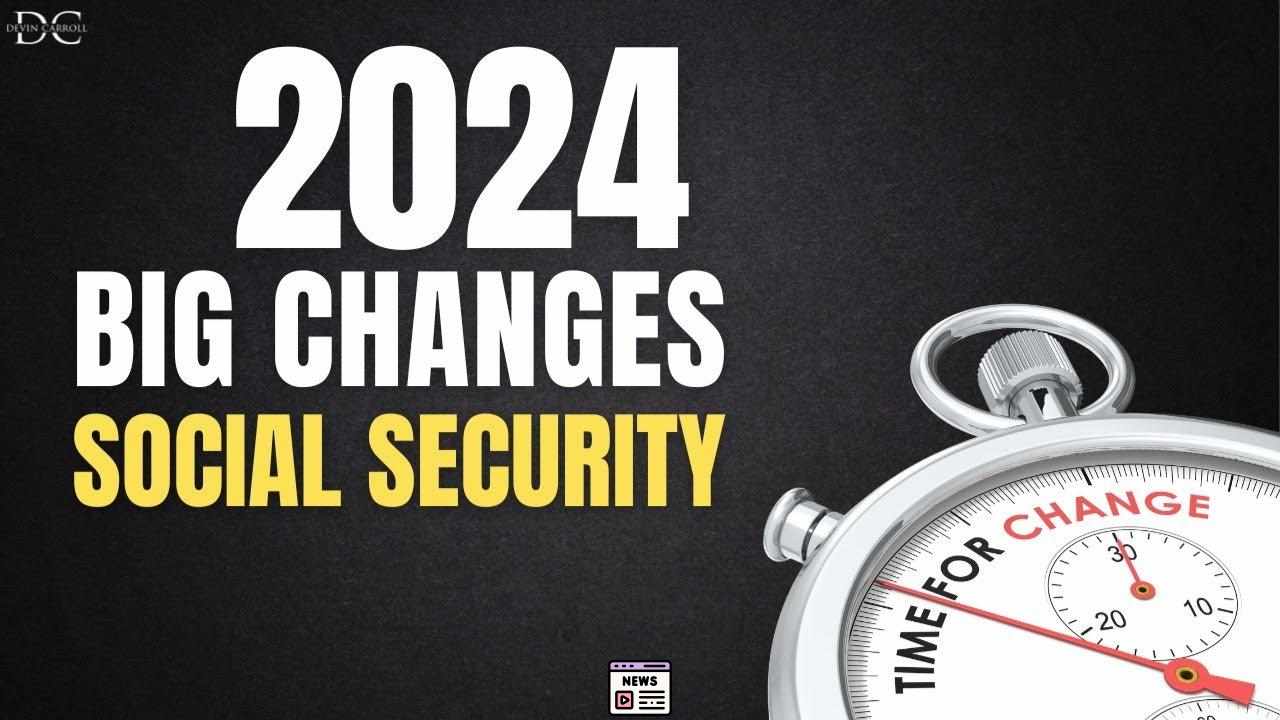Updated on: October 7, 2024 1:51 am GMT
As millions of Americans look ahead to changes in Social Security for 2025, many are wondering how these adjustments will affect their benefits. The Social Security Administration (SSA) has yet to finalize its announcements for the coming year, but we can already anticipate significant changes that will impact both current beneficiaries and future retirees. If you have ever experienced uncertainty regarding your financial future, understanding these upcoming changes could provide you with the peace of mind and clarity you need to navigate the next steps in your retirement planning. So, let’s dive into what’s on the horizon for Social Security in 2025!
Anticipated Changes for 2025
1. Cost-of-Living Adjustment (COLA)
One of the key concerns for Social Security recipients every year is the Cost-of-Living Adjustment (COLA), which aims to keep benefits from losing value due to inflation. As of July, inflation has slowed down significantly, resulting in projections of a 2.57% COLA for 2025. This marks a decrease compared to the 3.2% adjustment in 2024. Although this adjustment would increase monthly benefits by approximately $50, retiree advocacy groups have pointed out that this increase may fall short of covering the rising costs of living.
For instance, a study by the Seniors League indicates that retirees may need an additional $370 per month just to maintain their buying power from a decade ago. This underscores a harsh reality: while the COLA aims to help, it may not fully bridge the income gap created by sustained inflation in essential expenses like groceries, housing, and healthcare.
2. Increased Full Retirement Age (FRA)
If you’re eyeing retirement and are planning your Social Security strategy, it’s crucial to note that the full retirement age (FRA) is gradually increasing. For those born from 1955 to 1960, the FRA will climb incrementally, reaching 66 years and 10 months by 2025. For individuals who turned 66 in 2024, their FRA will be 66 years and 8 months.
Choosing to retire early at 62 will result in a reduced benefit every month until full retirement age, underscoring the importance of timing when it comes to claiming Social Security benefits. The longer you can delay receiving benefits past your FRA (up to age 70), the more your monthly payments will increase, enhancing your financial security in retirement. This is crucial, especially as many people are now living longer and may require more substantial funds to support a prolonged retirement.
3. Changes to Social Security Credits and Wage Caps
Additionally, for the upcoming year, workers will need to earn more to qualify for Social Security credits. Currently, earning one credit requires $1,730 in wages or self-employment income (which increases annually). Once the SSA releases the numbers for 2025, we can expect this threshold to climb further, although specific figures haven’t been confirmed yet.
This is particularly important for workers to understand, as a total of 40 credits is required to be eligible for retirement benefits. Moreover, the wage cap for Social Security tax, which for 2024 is $168,600, is expected to increase. This cap limits the income subject to Social Security taxation, so individuals earning above this amount will face higher Social Security tax bills in 2025.
Implications for Arizonans
For Arizonans, these changes will likely resonate strongly, as the state has a significant population of retirees and working individuals who depend on Social Security. Particularly in Arizona, where many retirees move for a more affordable cost of living, the internal pressures from inflation and housing costs cannot be ignored.
The COLA projections suggest that many Arizonans may face challenges in budgeting their expenses, as the anticipated increase won’t fully cover rising prices for essentials. Additionally, those who are mid-career or approaching retirement will want to evaluate their earnings strategy—ensuring they are on track to gather the necessary credits but also considering their income strategies to cope with changing tax implications on future wages.
Planning for the Future
With the upcoming Social Security adjustments, planning becomes essential. Beneficiaries must assess their financial situations and remain proactive about their planning. Ask yourself:
- When is the right time for me to claim Social Security benefits?
- Am I on track to earn enough credits for retirement?
- How can I navigate rising costs with my current benefits?
Living on a fixed income can be challenging, especially as costs continue to rise. It may be beneficial to consult with a financial advisor for tailored advice on how to maximize Social Security benefits and develop a robust retirement strategy.
Conclusion
As we approach 2025, staying informed about changes to Social Security can empower you to make wise decisions affecting your financial well-being in retirement. Though the news of smaller-than-expected COLAs and adjustments in full retirement age may feel daunting, there are steps you can take to prepare and adapt to these changes.
Staying involved in your financial planning is really important. The more you pay attention, the better you’ll be at handling any challenges or chances that come your way. Keep an eye on what’s happening, and think about talking to financial experts who can give you advice that fits your needs. Your financial future is up to you, so make it the best it can be!
